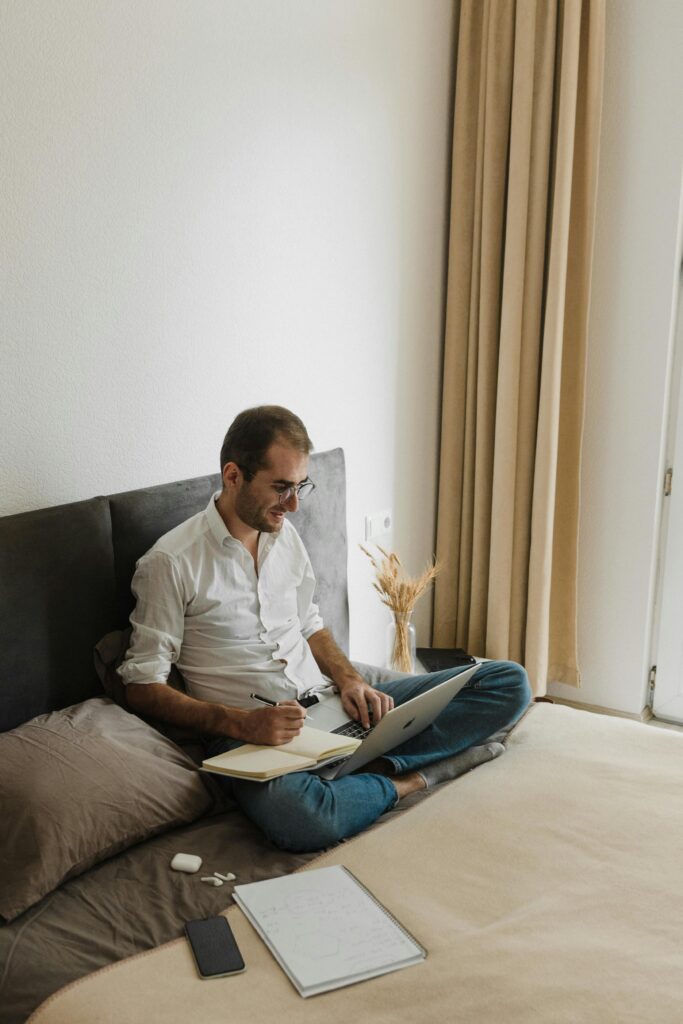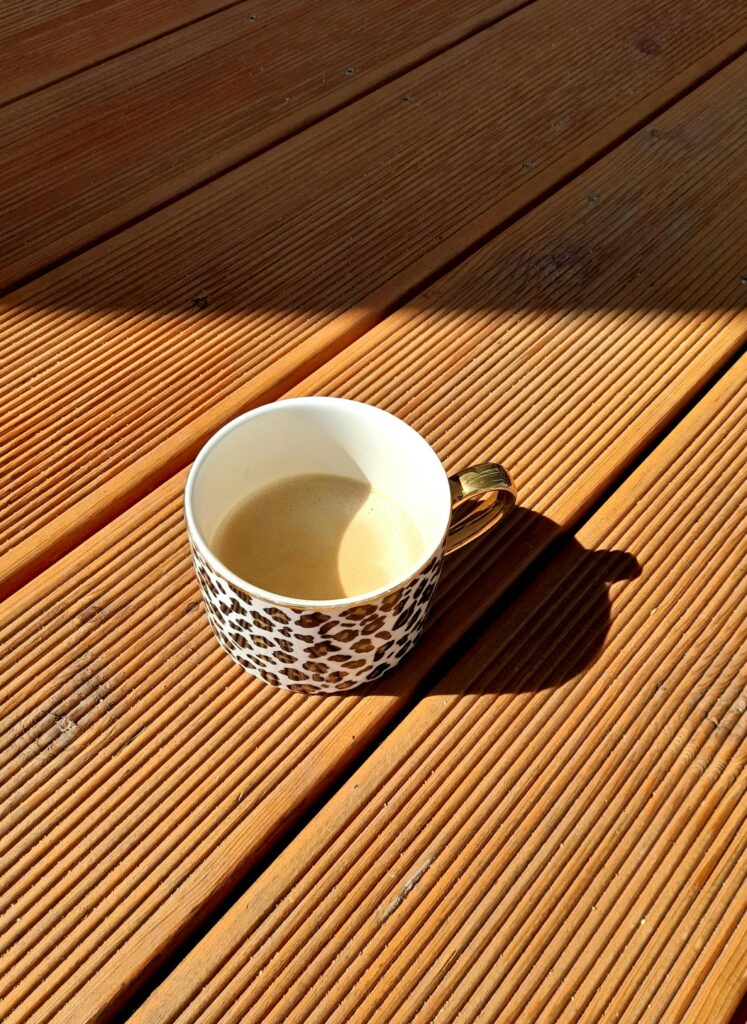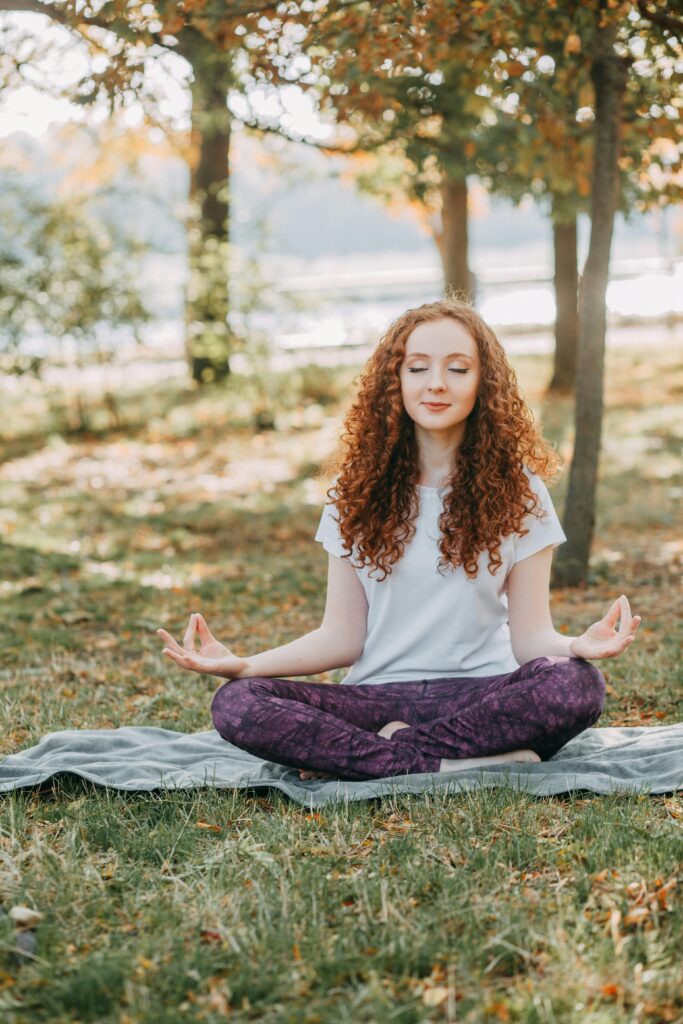Minimalism is more than just a trend; it’s a lifestyle that promotes simplicity, intentionality, and mindful living. The minimalist philosophy encourages people to focus on what truly matters by eliminating excess and unnecessary clutter from their lives. Whether you’re a seasoned minimalist or just starting, embracing minimalism can lead to a more fulfilling and stress-free life.
In this guide, we will delve into the core principles of minimalist living and provide actionable tips to help you simplify your life. We’ll explore how minimalism can positively impact various aspects of your life, from your home environment to your finances, mental health, and overall well-being. Along the way, we’ll back up our advice with statistics and data, ensuring that you have a well-rounded understanding of the benefits of minimalist living.

What is Minimalist Living?
Minimalist living is the practice of simplifying your life by removing excess possessions, distractions, and activities that do not contribute to your well-being. It’s about living with intention and purpose, focusing on the things that truly matter, and letting go of the rest.
According to a survey conducted by the U.S. Census Bureau, the average American household contains over 300,000 items. This staggering number highlights the extent of consumerism in modern society, where people often accumulate more than they need. Minimalism challenges this norm by encouraging individuals to adopt a “less is more” mentality.
Key Takeaways
- Simplify Your Life: Minimalist living is about reducing excess and focusing on what truly matters, leading to a more intentional and stress-free life.
- Declutter Strategically: Start by decluttering one area at a time and adopt habits like the 80/20 rule and a one-in, one-out policy to maintain a clutter-free environment.
- Practice Mindful Consumption: Prioritize quality over quantity, avoid impulse purchases, and support ethical brands to align with your values and reduce waste.
- Adopt Space-Saving Solutions: Use multi-functional furniture, vertical storage, and a minimalist wardrobe to maximize space and create a more organized home.
- Improve Mental Health: A minimalist lifestyle can reduce stress, decision fatigue, and create a calming environment that supports better mental well-being.
- Achieve Financial Freedom: Minimalism promotes mindful spending, debt reduction, and investing in experiences over material goods, helping you reach financial goals.
- Sustainable Living: Minimalism aligns with sustainable practices by reducing consumption and waste, making it a lifestyle choice that benefits both you and the planet.
The Benefits of Minimalist Living
Embracing minimalist living offers numerous benefits, including:
- Reduced Stress: Clutter has been shown to increase stress levels. A study published in the Personality and Social Psychology Bulletin found that women who described their homes as “cluttered” had higher levels of cortisol, a stress hormone.
- Improved Focus: With fewer distractions, minimalists often find it easier to concentrate on their goals and priorities. A clear environment contributes to a clear mind.
- Financial Freedom: By spending less on material possessions, minimalists can save money and achieve financial goals more quickly. According to a report by the Federal Reserve, 40% of Americans would struggle to cover a $400 emergency expense. Minimalism encourages mindful spending, which can help alleviate financial stress.
- Environmental Impact: Minimalism promotes sustainability by reducing consumption and waste. The Environmental Protection Agency (EPA) estimates that the average American produces about 4.9 pounds of waste per day. By adopting a minimalist lifestyle, you can significantly reduce your environmental footprint.
Minimalist Living Tips for Beginners
If you’re new to minimalism, starting can feel overwhelming. Here are some practical tips to help you ease into a minimalist lifestyle:
- Start with One Area: Focus on decluttering one area of your life at a time, such as your wardrobe, kitchen, or digital devices. This approach makes the process more manageable and less daunting.
- Set Clear Goals: Define what minimalism means to you and set specific goals for your minimalist journey. Whether it’s reducing debt, creating a more organized home, or improving mental clarity, having clear objectives will keep you motivated.
- Practice Mindful Consumption: Before making a purchase, ask yourself if the item aligns with your values and if it will truly add value to your life. This practice can help you avoid impulse buying and reduce unnecessary clutter.
Decluttering Tips for a Minimalist Home

A clutter-free home is the cornerstone of minimalist living. Decluttering not only creates a more organized space but also promotes a sense of calm and well-being. Here are some decluttering tips to help you create a minimalist home:
- Use the 80/20 Rule: The Pareto Principle, or 80/20 rule, suggests that we use 20% of our possessions 80% of the time. Identify the items you use most frequently and consider donating or discarding the rest.
- Adopt a One-In, One-Out Policy: For every new item you bring into your home, commit to removing one. This policy helps maintain balance and prevents clutter from accumulating.
- Declutter Sentimentally: Sentimental items can be the most challenging to declutter. Consider keeping only the most meaningful items and find creative ways to preserve memories, such as photographing keepsakes before letting them go.
Minimalist Lifestyle Habits to Adopt

Minimalism is not just about decluttering physical space; it’s also about cultivating habits that promote simplicity and intentionality. Here are some minimalist lifestyle habits to incorporate into your daily routine:
- Practice Gratitude: Focusing on what you have rather than what you lack can shift your mindset toward contentment. A study published in the Journal of Positive Psychology found that practicing gratitude can increase happiness and reduce materialism.
- Limit Screen Time: Digital clutter can be just as overwhelming as physical clutter. Set boundaries for screen time and regularly declutter your digital devices by deleting unused apps, emails, and files.
- Simplify Your Schedule: A busy schedule can lead to burnout. Prioritize your commitments and learn to say no to activities that don’t align with your values or goals.
Minimalist Budgeting Tips
Minimalist living can significantly impact your finances by promoting mindful spending and reducing unnecessary expenses. Here are some minimalist budgeting tips to help you achieve financial freedom:
- Create a Simple Budget: A minimalist budget focuses on essential expenses such as housing, utilities, groceries, and savings. Track your spending and identify areas where you can cut back.
- Embrace a Cash-Only Lifestyle: Using cash for everyday purchases can help you become more aware of your spending habits. According to a study by the Journal of Consumer Research, people tend to spend less when using cash compared to credit cards.
- Prioritize Experiences Over Things: Instead of spending money on material possessions, invest in experiences that create lasting memories. Research published in the Journal of Experimental Social Psychology suggests that people derive more satisfaction from experiences than from material goods.
Mindful Consumption: A Key Component of Minimalism
Mindful consumption is a critical aspect of minimalist living. It involves making intentional choices about what you bring into your life, whether it’s material possessions, information, or experiences. Here are some strategies for practicing mindful consumption:
- Buy Quality Over Quantity: Invest in high-quality items that will last longer, rather than buying cheap products that need frequent replacement. This approach is not only cost-effective in the long run but also reduces waste.
- Support Ethical Brands: Choose products from companies that prioritize sustainability, fair labor practices, and eco-friendly materials. Supporting ethical brands aligns with the minimalist value of reducing harm to the environment and society.
- Avoid Impulse Purchases: Before making a purchase, take a moment to consider whether you truly need the item. Waiting 24 hours before buying can help you avoid impulse purchases and make more deliberate decisions.
Space-Saving Solutions for a Minimalist Home
Maximizing space is essential for maintaining a minimalist home. Here are some space-saving solutions to help you make the most of your living area:
- Multi-Functional Furniture: Invest in furniture that serves multiple purposes, such as a sofa bed, a storage ottoman, or a foldable desk. This type of furniture helps reduce clutter and makes your space more versatile.
- Vertical Storage: Use vertical storage solutions, such as wall-mounted shelves and hanging organizers, to free up floor space. This approach is particularly useful in small homes or apartments.
- Minimalist Closet: A minimalist wardrobe is streamlined and versatile. Consider adopting a capsule wardrobe, which consists of a limited number of high-quality, interchangeable pieces. This not only saves space but also simplifies the process of getting dressed each day.
Intentional Living: Aligning Your Life with Your Values
Intentional living is about making deliberate choices that reflect your values and priorities. By embracing intentional living, you can create a life that is meaningful and fulfilling. Here are some tips for living with intention:
- Define Your Values: Take time to identify your core values and what matters most to you. Use these values as a guide for making decisions and setting goals.
- Set Boundaries: Protect your time and energy by setting boundaries in your personal and professional life. This may involve saying no to certain commitments or limiting your exposure to negative influences.
- Focus on Personal Growth: Invest in activities that contribute to your personal growth, such as reading, learning new skills, or practicing mindfulness. By prioritizing self-improvement, you can live a more intentional and purpose-driven life.
The Role of Minimalism in Mental Health

Minimalism can have a profound impact on mental health by reducing stress, anxiety, and overwhelm. Here’s how minimalism can support your mental well-being:
- Reduce Decision Fatigue: Decision fatigue occurs when you become overwhelmed by the number of choices you have to make. By simplifying your life and reducing the number of decisions you need to make each day, you can conserve mental energy and reduce stress.
- Create a Calming Environment: A clutter-free environment promotes a sense of calm and relaxation. Studies have shown that a tidy space can lead to lower levels of cortisol, the stress hormone, and improved overall well-being.
- Practice Mindfulness: Minimalism encourages mindfulness by helping you focus on the present moment and appreciate the simple pleasures in life. Regular mindfulness practices, such as meditation or deep breathing, can improve mental clarity and emotional resilience.
Minimalism and Sustainable Living
Minimalism and sustainability go hand in hand. By consuming less and making eco-friendly choices, you can reduce your environmental impact and contribute to a healthier planet. Here are some ways to practice sustainable minimalism:
- Reduce Waste: Adopt a zero-waste lifestyle by minimizing single-use plastics, composting organic waste, and recycling. According to the EPA, only 32.1% of municipal solid waste was recycled in the United States in 2018. By reducing waste, you can help increase this percentage and protect the environment.
- Choose Sustainable Materials: When purchasing new items, opt for products made from sustainable materials, such as bamboo, organic cotton, or recycled materials. These materials have a lower environmental impact and are often more durable.
- Support Local Businesses: Buying locally reduces the carbon footprint associated with transportation and supports your local economy. Consider shopping at farmers’ markets, local boutiques, and small businesses to make a positive impact.
Minimalism in Personal Finance

Minimalism can play a significant role in improving your financial health. By prioritizing needs over wants and reducing unnecessary expenses, you can achieve greater financial stability. Here are some tips for practicing financial minimalism:
- Create an Emergency Fund: A minimalist approach to finances emphasizes the importance of having an emergency fund. According to the Federal Reserve, 28% of adults do not have any emergency savings. Building an emergency fund can provide peace of mind and protect you from financial setbacks.
- Eliminate Debt: Reducing debt is a key aspect of financial minimalism. Focus on paying off high-interest debt first and avoid accumulating new debt. A study by Northwestern Mutual found that the average American carries $38,000 in personal debt, excluding mortgages. By embracing minimalism, you can work towards becoming debt-free and achieving financial freedom.
- Invest in Quality Over Quantity: When making purchases, opt for high-quality items that will last longer and provide better value over time. This approach reduces the need for frequent replacements and can save you money in the long run.
Conclusion
Embracing minimalist living is a powerful way to create a more intentional, peaceful, and fulfilling life. By simplifying your environment, adopting mindful habits, and focusing on what truly matters, you can reduce stress, achieve financial freedom, and improve your overall well-being. Whether you’re just beginning your minimalist journey or looking to deepen your practice, these tips provide a solid foundation for living with less and experiencing more of life’s true joys. Minimalism is not just about decluttering your space—it’s about making room for what truly enriches your life.
FAQs About Minimalist Living Tips
- What is the first step to starting a minimalist lifestyle?
- The first step to starting a minimalist lifestyle is to define your goals and values. Understand why you want to adopt minimalism and how it aligns with your life priorities. This clarity will guide your decisions as you begin to declutter and simplify your life.
- How can I practice minimalism with a family?
- Practicing minimalism with a family involves open communication and setting shared goals. Involve family members in the decluttering process and encourage them to embrace the benefits of living with less. Focus on creating meaningful experiences together rather than accumulating material possessions.
- Can minimalism help with mental health?
- Yes, minimalism can positively impact mental health by reducing stress, anxiety, and overwhelm. A clutter-free environment and a simplified lifestyle promote mental clarity, relaxation, and overall well-being.
- How do I maintain a minimalist lifestyle in a consumer-driven society?
- Maintaining a minimalist lifestyle in a consumer-driven society requires mindfulness and intentionality. Practice mindful consumption, set boundaries around your spending habits, and stay focused on your values and goals. Surround yourself with like-minded individuals who support your minimalist journey.
- What are some space-saving solutions for small homes?
- Space-saving solutions for small homes include multi-functional furniture, vertical storage, and a minimalist closet. Focus on maximizing the use of available space by choosing furniture that serves multiple purposes and minimizing clutter.
- How can minimalism help with financial goals?
- Minimalism can help with financial goals by promoting mindful spending, reducing unnecessary expenses, and prioritizing needs over wants. By embracing a minimalist approach to finances, you can save more money, pay off debt, and achieve financial freedom.
- Is minimalism sustainable?
- Yes, minimalism is sustainable because it encourages reducing consumption and waste. By choosing quality over quantity, supporting ethical brands, and adopting a zero-waste lifestyle, minimalism aligns with sustainable living principles and contributes to a healthier planet.
